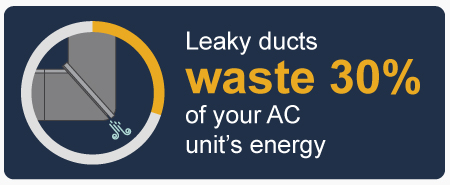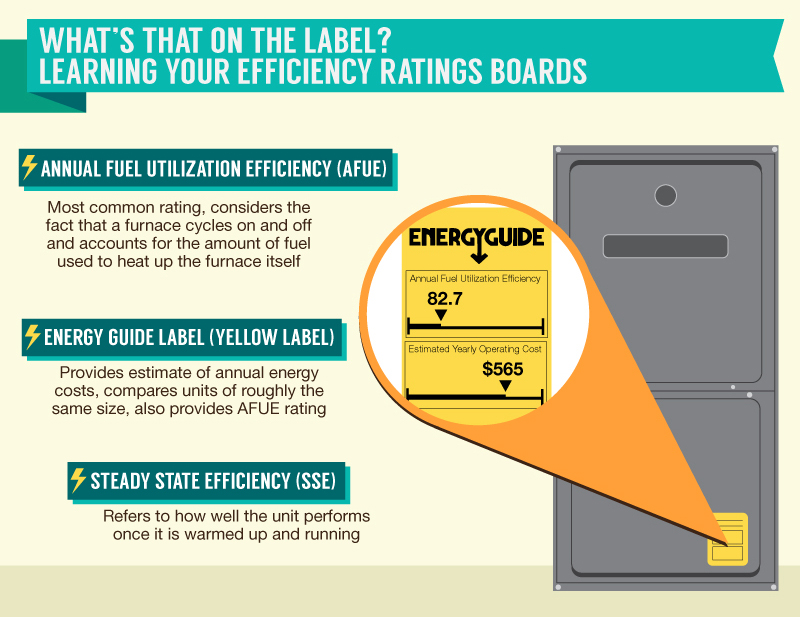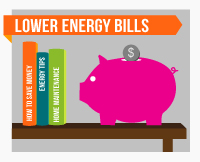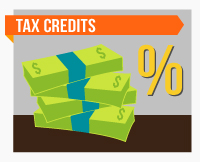Top 3 HVAC Problems in Portland During Spring
After a cold winter, it’s great to finally be able to open windows and let in the fresh air. Spring is also a good time to think about home maintenance, working on improvements, and checking tasks off the to-do List. One thing to consider is the condition of your HVAC system. Spring HVAC problems can be prevented by taking regular care of a system. Common problems Portland AC units experience include:
- Leaks
- Water, debris, and corrosion
- Freezing
- Dirty ducts, filters, fans, and coils
- Worn belts, motors, and moving parts
However, these problems can be avoided with maintenance. AAA Heating and Cooling performs inspections to provide comprehensive evaluations of specific needs, and how to maintain a system. We know how to identify, resolve, and prevent common problems.
1. Corrosion and Moisture in HVAC Systems
Water can corrode wiring and components, and reduce the efficiency and lifespan of a unit. Portland receives a fair share of rain, so it’s important to address the specific needs of a system in this kind of environment. This means taking precautions to protect a system from the elements, such as covering ducts, valves, fans, and openings vents to prevent debris and moisture from entering the system. It can be expensive to address water damage, so it’s important to catch any issues at an early stage, and learn to prevent future problems.

2. HVAC Systems Can Freeze or Leak
Once spring has finally arrived and you turn on the AC for the first time, you may discover it’s not functioning at an optimal level, perhaps as a result of damage that occurred during the winter. Cold temperatures can be problematic to an AC unit because moisture in the system can not only corrode wires, coils, and valves, but also freeze and cause leaks in ducts, valves, and pumps. Refrigerant leaks not only reduce the efficiency of a system, but they can also cause damage to other components. The extra strain decreases AC performance and can be costly.
Signs of damage include:
- Inadequate and uneven cooling
- The unit constantly runs
- High energy costs
3. Not So Fresh Air
Portland showers bring spring flowers – and flowers mean pollen. Pollen is not only a common allergen, but it can also affect the efficiency of an HVAC system. Spring is a good time to check filters for needed cleaning or replacement. With a dirty filter, pollen, dust, and other allergens will be circulated into the air you breathe. Air particles like pollen can clog ducts, affect fans, and cause a unit to work harder. This increases the energy bill and could shorten the lifespan of a system.
Coils are more exposed to the elements and are a more delicate component. They can become dirty and collect debris, reducing the efficiency of the cooling cycle. The coils require the expertise of a trained technician to clean them. If the coils aren’t operating properly, the efficiency and lifespan of the entire AC unit could be impacted.
Don’t get caught sweating in the summer heat by neglecting to do routine AC maintenance in the spring. Schedule an appointment today!
Questions to Ask When Choosing Energy Efficient HVAC Systems
Shopping for an energy efficient HVAC system is a large investment in your home. As building envelopes become tighter and insulation improves the HVAC system that your home required 20 years ago might not fulfill the same needs today. This is especially true if your house received several energy-saving improvements. Asking the right questions about the products you are considering gives you the information that you need to make an educated decision about the best HVAC system for your home, needs, and budget
What to Ask When Shopping for an Energy Efficient HVAC System
What is the SEER number and HSPF rating?
The Seasonal Energy Efficient Ratio (SEER) on a cooling unit tells you how efficient it is. The Heating Season Performance Factor (HFSP) tells you about the efficiency of a heat pump. Systems with an ENERGY STAR label have a SEER of at least 14.5 and an HSPF of at least 8.2 (the higher the number, the greater the efficiency).
What HVAC size do I need?
An energy efficient HVAC will actually waste energy if it is too big or too small. Instead of just using the size of an existing system, a contractor should also take into account additions and energy-saving upgrades that you’ve invested in your home. System size also matters if you plan to add multiple heating and cooling zones in your home.
What is the best type of HVAC unit for my home?
Heating and cooling units are available as natural gas-powered systems, all-electric units, heat pumps, combination systems, ductless mini splits, and radiant heat systems. Review your comfort standards and heating and cooling needs with a licensed HVAC contractor to learn about the advantages and disadvantages regarding the different types of HVAC units available for your home. Find out more about the energy and cost advantages of ductless systems here.

Can you provide me with a free, no-obligation quote?
A good HVAC contractor provides an accurate estimate for an HVAC system, its installation, labor costs, and the options available in writing. This estimate should include the price of parts, energy efficiency-related information and warranty specifications.
What rebates and tax breaks are available for energy-saving HVAC systems?
Investigate local, state, and federal tax laws and energy departments to learn if a system is available for a rebate or tax incentive. In addition, see which manufacturers are offering their own rebates to maximize your savings. A good HVAC contractor will have this information for you.
What are the lifetime operating costs?
When shopping for an HVAC system, look beyond the price and installation costs. Estimate the annual energy costs for your area. Learn how much it costs to maintain the system and if it needs specialized parts that might cost more than others.
What type of air filters does the HVAC unit use?
Some types of HVAC units use specific filters, while others may accommodate different types, such as disposable, washable, or HEPA filters. Learn how often you need to replace or clean the filters, too.
Do I need to replace all of the HVAC equipment?
For an HVAC system to work optimally, it must match the ductwork. Otherwise, you’ll experience energy losses. This could mean finding a heating and cooling system that matches the equipment in your home or replacing the equipment so it matches the system you choose. You may also need a new thermostat.
What does the warranty cover and how long does the coverage last?
Not all warranties are the same. Some offer longer terms and cover different aspects of the HVAC unit. When investigating warranties, also remember to educate yourself on what actions will void them. Curious about ratings? This is what those SEER ratings actually mean.
Does the HVAC unit have moisture control elements?
A home that’s too dry might make you feel uncomfortable, prolong the life of certain viruses, and can cause wood floors and furniture to crack from the lack of moisture. Too much humidity leads to mold and bacterial growth and can make a space feel too stuffy. Moisture control elements in an HVAC unit keep you comfortable and healthy while preventing unnecessary damage to your belongings.
Shopping for an energy efficient HVAC does not have to be confusing or overwhelming. When you work with a reputable contractor like AAA you’ll receive personalized assistance for finding the best energy-efficient products for your home and needs. Contact AAA today to schedule a free consultation. Learn more about our residential services here.
Photo by p.Gordon via CC License
6 Great Reasons to Replace Your Old & Failing HVAC Equipment
As a home or business owner, you’re likely well aware of the seemingly endless to-do list when it comes to keeping your space comfortable, safe, and healthy. In addition, the wear and tear on appliances and other systems can leave you frustrated with the repair and maintenance costs. A tight budget may also make you feel reluctant to upgrade your old HVAC system. However, due to the high price of repairs and utility bills, outdated units can cost you more in the long run.
So when should you replace your HVAC system? Firstly, it’s crucial to understand the correlation between old, inefficient heating and cooling equipment and wasted energy, which in turn, leads to wasted money. An excellent way to save on energy and HVAC costs is to invest in a new heating and cooling system.
Is it time to upgrade your HVAC unit? To answer this question, we’ve outlined six excellent reasons to replace your old and failing HVAC equipment.
 1. Reduced Utility Costs
1. Reduced Utility Costs
New residential HVAC systems require less energy to operate. This means reduced heating, cooling, and electrical costs for homeowners, making a new unit a smart investment. New HVAC systems also consume less energy than older units. As a result, home and business owners can save on energy during peak summer and winter months in Portland. Most new units reduce utility costs by more than 15 percent.
2. Reduced Maintenance & Repairs
In addition to requiring less energy to run, new HVAC units do not need as much maintenance as older models and will need to be repaired less often. As a result, you’ll save money on the cost of service checks and last-minute repair services.
 3. Rebates & Other Cost Incentives
3. Rebates & Other Cost Incentives
Installing a new HVAC system in your home or business may come with the added benefit of rebates, tax credits, and other cost incentives. Homeowners can save money through Oregon’s RETC (Residential Energy Tax Credit) program as well as the federal Residential Energy Efficiency Tax Credit. Business owners can enjoy cost savings through Oregon’s energy incentive programs and the federal Business Energy ITC (Investment Tax Credit). At AAA Heating and Cooling, we’ll handle all the necessary paperwork for you for a hassle-free installation process.
4. Eliminated Production of CFC Refrigerants
Modern heating and cooling systems do not produce freon, carbon, chlorine, and other CFC (chlorofluorocarbons) refrigerants which prevents the need to repair leaks. In addition, CFC refrigerants are known to deplete the ozone layer, so a new residential or commercial HVAC unit has eco-friendly benefits as well.

5. Improved Indoor Air Quality
Certain pollutants including mold, carbon monoxide, pollen, dust, gas, and airborne chemicals can impact the quality of your indoor air. Upgrading your heating and cooling system will improve the indoor air quality in your residential or commercial space. If you’re unsure about your current indoor air quality, schedule a service check with a trained specialist from AAA Heating and Cooling.
6. Reduced Carbon Footprint
Replacing your old HVAC equipment will reduce your home or business’s energy waste. In Portland, mandates are in place to regulate energy use in buildings. Energy-efficient HVAC equipment will help you meet the goals outlined by the ETO (Energy Trust of Oregon).
The Best HVAC Systems in Portland from AAA Heating and Cooling
Upgrading your heating and cooling system should be viewed as an investment. Older units can rack up high bills in the form of repairs, maintenance, utility costs, tax rates, and healthcare due to poor indoor air quality. Replacing your old, inefficient HVAC equipment will reduce your bills and carbon footprint, improve your air quality, and create a greener living or work environment. Our Portland HVAC installers are trained and knowledgeable in virtually every type and model when it comes to heating and cooling units.
At AAA Heating and Cooling, we offer several types of commercial and residential HVAC systems designed with efficiency, affordability, and year-round comfort in mind. We provide HVAC services in Portland and the surrounding areas. To learn more about the heating and cooling systems offered from AAA or to schedule a service appointment, contact a member of our team today by calling (503) 284-2173.